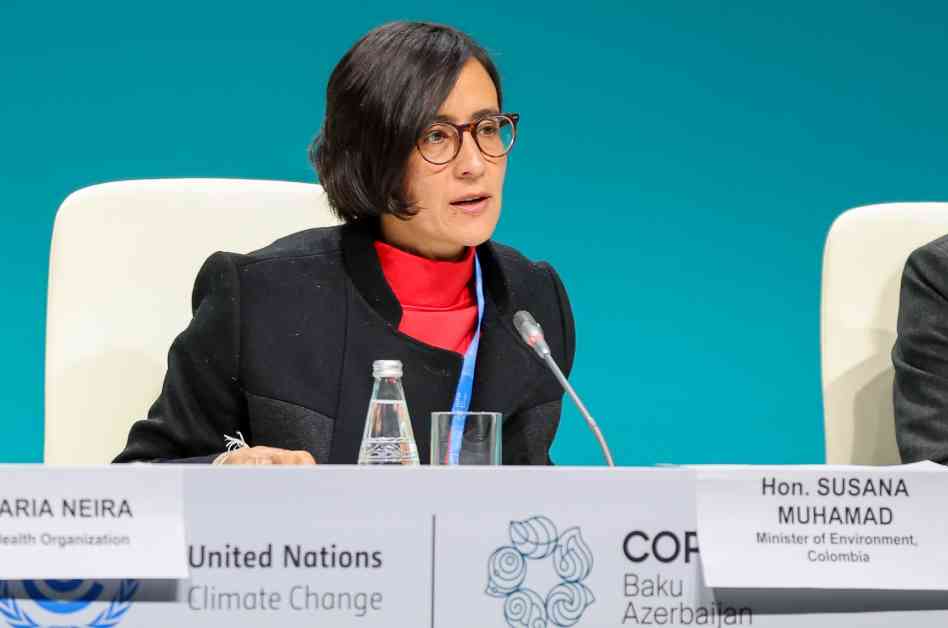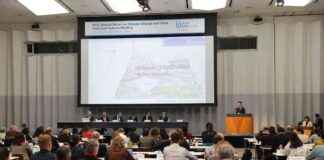Colombia’s COP16 Presidency Hangs in the Balance as Minister Resigns
Colombia is facing a critical juncture as Susana Muhamad, the country’s Minister of Environment and President of the COP16 UN biodiversity negotiations, has tendered her resignation. Muhamad, who has held this position since 2022, has expressed her desire to step down from her government role but has requested to remain in her post to oversee the conclusion of the UN nature talks scheduled for later this month in Rome.
In her resignation letter dated February 8, Muhamad emphasized the importance of finalizing the COP16 summit, which was left unfinished in Colombia last year and is now slated to take place from February 25 to 27 in Rome. She highlighted her leadership in the ongoing negotiations and her role as the COP president, offering to make her resignation effective from March 3 if President Gustavo Petro deems it necessary.
Challenges and Controversies
Muhamad’s decision to resign comes amid a backdrop of controversy surrounding the appointment of former senator Armando Benedetti as Petro’s chief of staff. Benedetti, who has been embroiled in allegations of domestic abuse and corruption, faced strong opposition from Muhamad during a recent council of ministers meeting. As a staunch advocate for women’s rights, Muhamad voiced her concerns about working alongside Benedetti and threatened to resign if he retained his position in the cabinet.
According to Oscar Soria, a respected biodiversity campaigner and CEO of The Common Initiative think-tank, Muhamad’s resignation could have a detrimental impact on the COP16 negotiations. Soria noted that the internal political crisis in Colombia has likely diverted attention away from crucial diplomatic efforts needed to ensure a successful outcome in Rome.
Uncertainty Looms Over Nature Talks
With Muhamad’s departure signaling a wave of resignations among other ministers, President Petro has put his entire cabinet on hold, requesting “protocolary resignations” from all members. This upheaval raises concerns about the level of support Muhamad can expect from her counterparts in engaging with foreign delegates during the upcoming nature talks.
The COP16 negotiations are poised to address critical issues such as financing for nature conservation and the establishment of a monitoring framework to gauge progress on biodiversity restoration. These matters were left unresolved following the time constraints faced by negotiators in Cali, Colombia, last year.
Key Decisions Await in Rome
One of the central topics up for discussion at the upcoming COP16 summit revolves around the future of the Global Biodiversity Framework Fund (GBFF), currently housed under the Global Environment Facility (GEF) until 2030. While some developing nations have advocated for the creation of a new fund to address accessibility challenges within the GEF, the negotiations in Rome are expected to provide clarity on this issue.
Observers anticipate that COP16 will play a crucial role in shaping the landscape of biodiversity financing, particularly in light of the shifting priorities under the new US administration. As countries navigate the evolving global conservation landscape, the need to secure public resources for conservation efforts becomes increasingly paramount.
In the midst of these developments, Karla Maas, a campaigner at Climate Action Network (CAN) Latin America, underscores the significance of reaffirming commitments to biodiversity protection and emphasizing the role of public funding in safeguarding natural ecosystems.
As Colombia grapples with political turbulence and the impending nature talks, the fate of the COP16 presidency hangs in the balance, with the international community closely watching the unfolding events in Rome.
(Reporting by Sebastian Rodriguez; editing by Megan Rowling)














